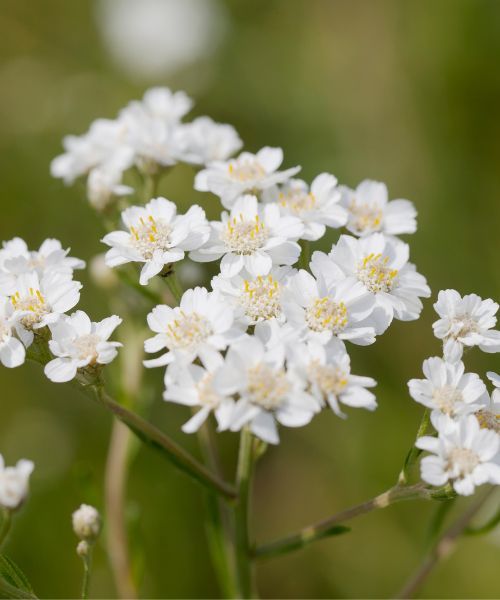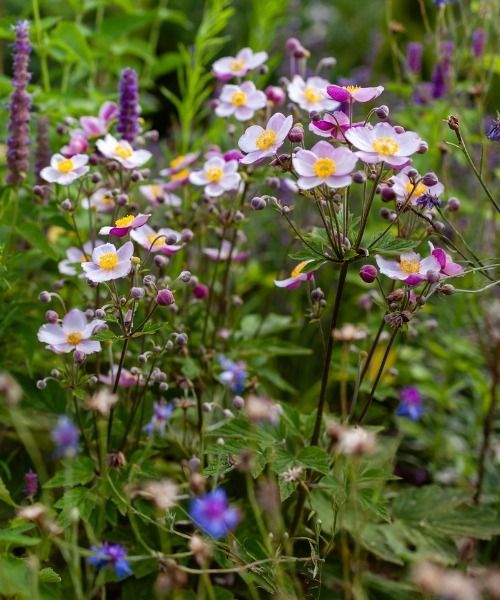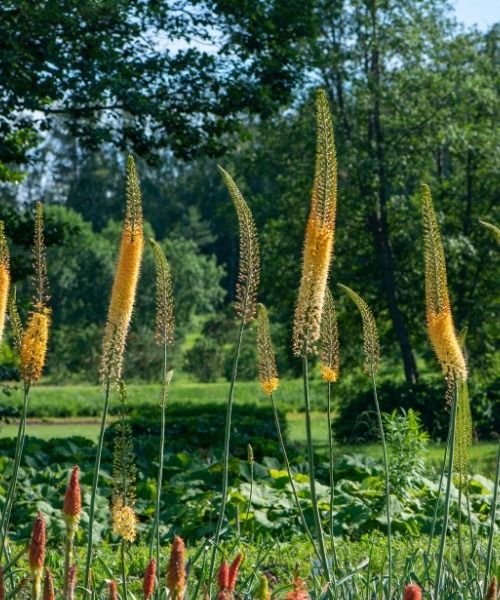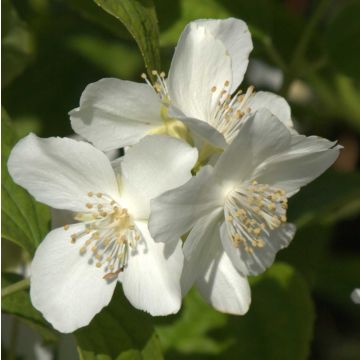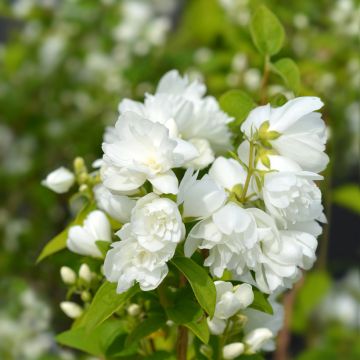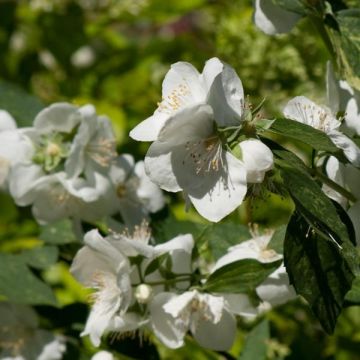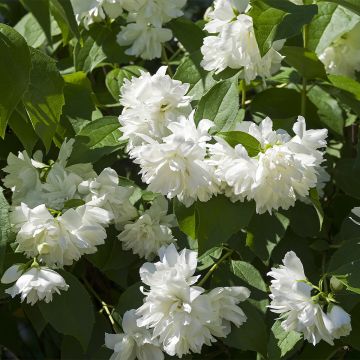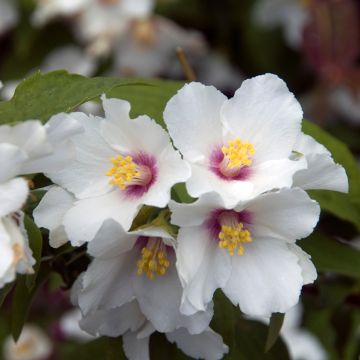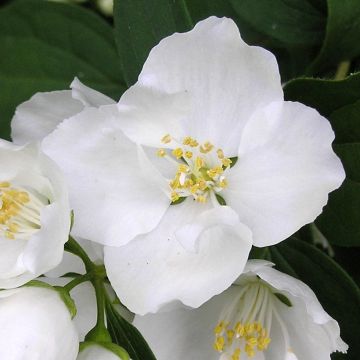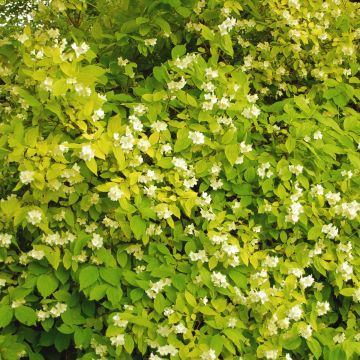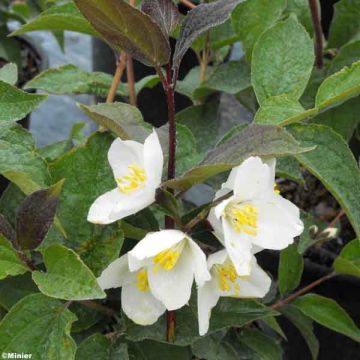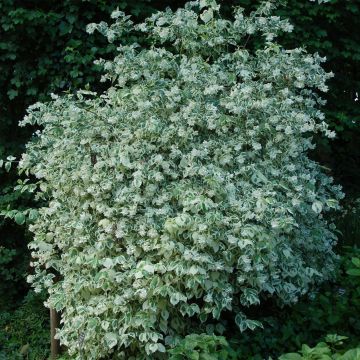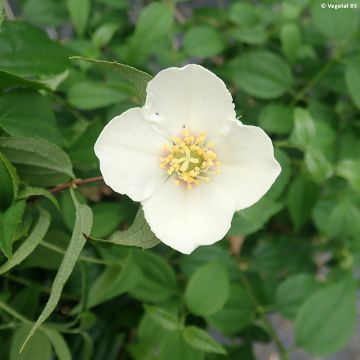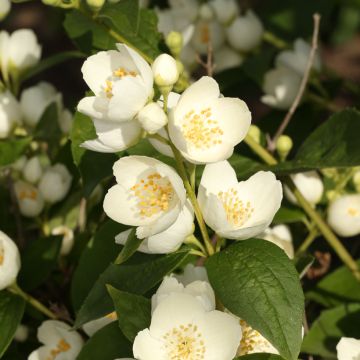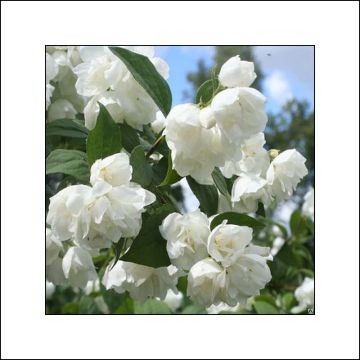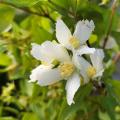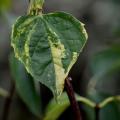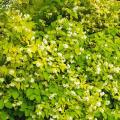Hedge Philadelphus
Does this plant fit my garden? Set up your Plantfit profile →
Available in 4 sizes
Available in 3 sizes
Available in 2 sizes
Available in 2 sizes
Available in 2 sizes
Available in 2 sizes
Available in 2 sizes
Available in 3 sizes
Available in 2 sizes
Available in 1 sizes
Available in 1 sizes
Available in 1 sizes
Available in 2 sizes
The white and fragrant mock orange bush, known in Latin as Philadelphus and charmingly called the poet's jasmine, is a deciduous bush that finds a prime place in country hedges, wild or flowering. It is sought after for its incredible fragrance and beautiful white flowers in late spring, as well as for its fast growth, great robustness, and low requirements. Beautifully embodied by the famous Philadelphus coronarius cultivated in gardens since forever, this deciduous bush comes in many varieties perfectly suited for hedge planting: let's mention Philadelphus virginalis or the traditional Lemoine hybrids such as Seringat de Lemoine, 'Albâtre', 'Belle Etoile', or even 'Avalanche' which can easily reach a height of 2m (7ft). The particularly vigorous Philadelphus x lemoinei 'Innocence', capable of reaching over 3m (10ft), is considered the most fragrant of the mock oranges. With variable size, green or variegated foliage, this inconspicuous bush in winter reveals itself during the beautiful season. American double-flowered hybrids such as 'Minesotta Snowflake', while often less fragrant, have a real decorative value. In a hedge, combine your mock oranges with lilacs, Deutzias, Kolkwitzias, spring Spireas, viburnums, and other worry-free bushes.
Easy to grow, the mock orange bush thrives in most soils, even fairly dry ones in summer, it is not prone to diseases and shows great hardiness. It tolerates pruning well, and it is even recommended from time to time to rejuvenate older specimens.
Haven't found what you were looking for?

































